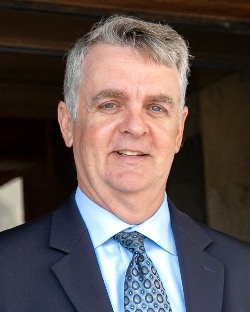New Florida Law Cracks down on Juvenile Drug Distribution Resulting in Death
As the US continues to grapple with the devastating effects of the opioid and fentanyl crisis, Florida was hit particularly hard. Florida is the nation’s second-highest state in total fentanyl overdose deaths, following California, based on 2022 data. Unintentional drug overdose deaths in Florida surged from 5,019 in 2019 to 7,137 in 2020, marking a 42% increase. During that same period, the overdose death rate climbed from 25.5 to 35 per 100,000 residents, a 37% rise, according to CDC and Florida Department of Health data. In response to these rising death tolls, lawmakers have introduced new measures to hold individuals, particularly minors, accountable for the deadly consequences of drug distribution. Senate Bill 612 (SB 612), which went into effect on July 1, 2025, represents a significant shift in the state’s criminal justice approach by creating a new category of homicide targeting juveniles who distribute lethal drugs. This statute is part of a broader trend to criminalize the outcomes of drug sales more harshly, even when the seller is under 18 years old.
What is SB 612?
Senate Bill 612 (SB 612), passed during Florida’s 2025 legislative session, adds a new provision to Florida Statutes § 782.04(5), specifically targeting minors who distribute drugs that result in a fatal overdose. The law makes it a second-degree felony, classified as third-degree murder, for anyone under the age of 18 to unlawfully distribute a controlled substance that causes the death of another person. This applies to dangerous narcotics such as fentanyl, heroin, methamphetamine, cocaine, and their analogs. By creating this statute, Florida aims to address the rising number of overdose deaths involving minors, both as victims and participants in drug distribution.
Prior to SB 612, while minors could still face serious charges for drug sales or trafficking, there was no specific statute elevating fatal distribution by juveniles to a homicide-level offense. Cases were typically handled under existing drug statutes or general manslaughter laws, often in juvenile court. SB 612 dramatically alters that framework by giving prosecutors a clear path to file homicide charges in overdose death cases involving minors as distributors.
What this means for juveniles accused of drug-induced homicide
SB 612 drastically changes how Florida courts treat juveniles charged with drug distribution that results in death. Before the new law, juveniles accused of distributing controlled substances, especially if it was a first offense, were often prosecuted in juvenile court, where the focus was on rehabilitation over punishment. In cases involving overdose deaths, prosecutors might have pursued lesser charges like involuntary manslaughter or sought to use the juvenile justice system’s diversion and treatment options rather than incarceration.
Now, under SB 612, juveniles who distribute lethal drugs can be charged with third-degree murder, a second-degree felony under Florida law, despite being under 18. This change means that prosecutors have more discretion to charge minors as adults in serious cases, especially when a fatal overdose occurs. It also significantly increases the potential penalties, including up to 15 years in prison, large fines, and the long-term consequences of a felony record. While courts still retain discretion in how to prosecute juveniles, SB 612 sends a clear message that fatal drug distribution will be treated with maximum seriousness, regardless of the defendant's age.
Opponents of this bill argue that this may be too harsh on Juvenile offenders. After all, the Juvenile justice system is designed to rehabilitate minors, instead of explicitly punish them. When it comes to minors and drug offenses, there could be more variables that come into play, such as peer pressure, that would cause them to act in certain ways they wouldn’t otherwise. On the other hand, supporters of this bill firmly believe that juveniles who distribute drugs know what they’re doing just as much as an adult does, and therefore they shouldn’t be given any extra leniency when it comes to consequences.
The Drug Policy Alliance, an organization that favors a public health approach to solving drug problems rather than criminalization, says drug-induced homicide laws are ineffective. Their fact sheetsays "Drug-induced homicide prosecutions can increase overdose death risk, exacerbate racial disparities, and consume resources without evidence of lifesaving or otherwise improved public health outcomes. They exacerbate the very problem they seek to remediate by discouraging people who use drugs from seeking medical help, and by targeting the friends, families, and peers of people who use drugs." A law like SB 612 which specifically targets minors would raise even more concerns from groups who oppose DIH.
Possible Defenses to Drug Distribution Resulting in Death Charges
While the consequences for juvenile drug distribution resulting in death are severe, several legal defenses may apply depending on the circumstances of the case. Florida law still requires that prosecutors prove the minor knowingly and unlawfully distributed a controlled substance that directly resulted in the fatal overdose. Therefore, one of the most common is lack of knowledge or intent. For example, if a 16-year-old shares what they believe to be a Xanax pill with a friend, and that pill turns out to be laced with fentanyl, unknown to the juvenile, they may argue that they lacked the intent to distribute a controlled substance capable of causing death.
Causation is another critical element. The prosecution must prove that the drug the juvenile provided was the actual and proximate cause of the death. Imagine a case where a teen gives a friend a small amount of cocaine, and later that same day, the friend also consumes opioids obtained elsewhere before dying. In this situation, a defense attorney may challenge whether the cocaine had any connection to the death at all. If the autopsy reveals the cause of death was a different substance or a combination of drugs, the defense can argue that the specific link to the juvenile’s actions is too weak to support a conviction.
Moreover, if the accused was coerced or manipulated by an older individual into distributing drugs, that coercion could also serve as a mitigating factor or potential affirmative defense. A strong legal strategy will include a detailed review of the circumstances, witness testimony, toxicology reports, and digital communications to construct a comprehensive defense.
Hire a Drug Induced Homicide Attorney in Florida
If you or a loved one has been charged with a Drug Induced Homicide, or other Drug related offense in Brooksville, Florida or the surrounding area, it is important to hire a criminal defense attorney immediately. The Law Office of Ashley Aulls can provide the legal assistance you need to ensure your case is in the right hands, and you will be getting the best representation that you deserve.
Call (352) 593-4115 to request a free consultation.















Comments